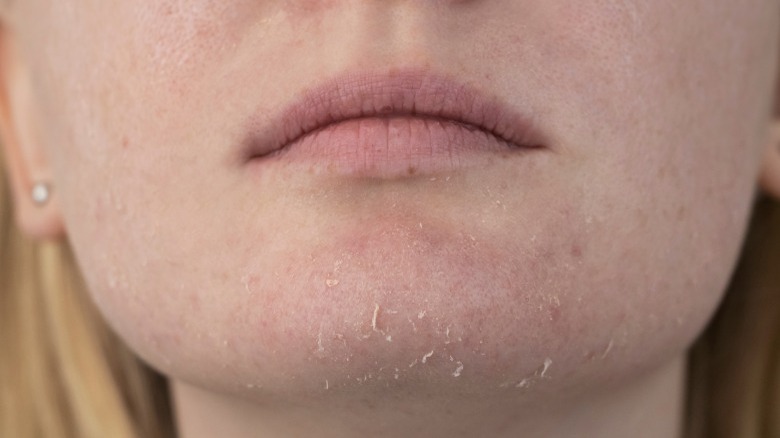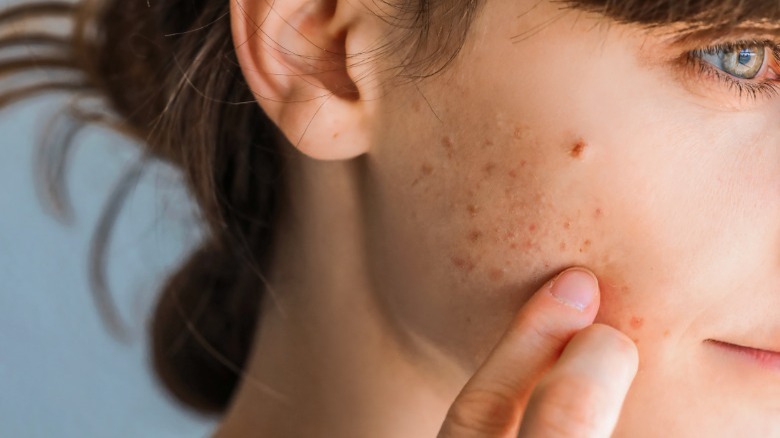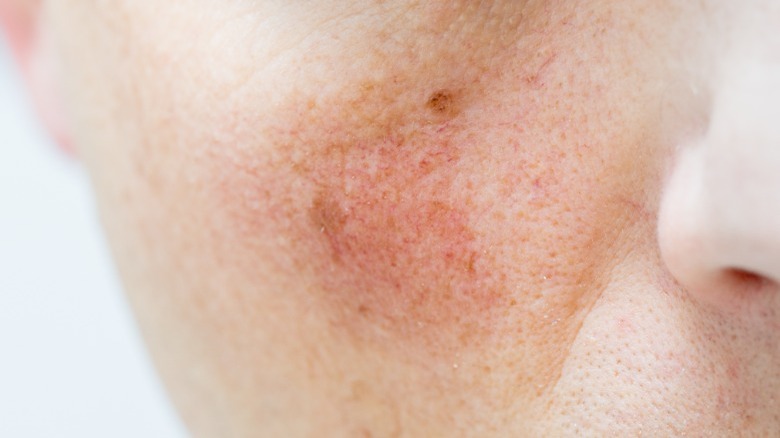Barrier Repair Products Are On The Rise. Here's How To Tell If Your Skin Needs One
We may receive a commission on purchases made from links.
When shopping for skincare products online, you have perhaps come across products that advertise protecting and restoring your skin barrier. Cool, that sounds important, you think to yourself as you place a serum with said description in your virtual shopping cart. But what exactly is the skin's barrier, and does it actually need protecting or restoration?
"In the simplest terms, [the barrier] is the skin's protective layer," Dr. Mona Gohara, associate clinical professor of dermatology at the Yale School of Medicine, told SELF. Here's the science: the outermost layer of the outermost layer of our skin, the epidermis, consists of a structure of cells and lipids called the stratum corneum. This is what we think of as the 'barrier.' According to the Journal of Clinical and Aesthetic Dermatology, the stratum corneum exhibits biological properties that contribute directly to protecting and maintaining healthy skin." Some of its functions include regulating water in the skin, protecting from radicals, preventing infection, responding to allergens, and protecting cells from UV radiation. Despite being largely made of dead cells, the stratum corneum is an active part of your skin.
Over time, the skin barrier can become damaged by way of various factors — harmful sun rays, environmental irritants, over-exfoliation, to name a few — weakening the skin's protection system and leading to different issues. While taking extra steps to prevent this damage is a good practice for all skin types, here are some indications your skin could benefit from barrier repair products.
Your skin is chronically dry
The clinical term for dry skin is xerosis, and your stratum corneum normally plays a significant role in preventing and healing it. In other words, if you start to notice chronic dry skin that won't go away, it could be a sign your skin barrier is malfunctioning. Per The National Institute of Health, xerosis can be caused by a number of factors, including over washing, using harsh cleansing products or astringents, or simply living in an environment with low humidity levels. All of these strip the stratum corneum of its necessary lipids and proteins, causing the skin to become tight, flaky, rough, dull, and even itchy and irritated. Over time, if nothing changes, the skin's barrier can become even more damaged, making it harder for it retain moisture and repair itself.
So what can you do about it? Pay attention to what you're using to wash your face. While products that tout strength, especially cleansers, might seem appealing to those who desire a deep clean in their pores, they can be the most damaging to your skin's barrier. Instead, look for a cleanser that is gentle on the skin, or one that has been highly formulated to both cleanse and restore moisture, such as the Paula's Choice Optimal Results Hydrating Cleanser.
You frequently use acne-fighting products
Although further research is needed to determine the direct link between acne and its relationship to the skin's barrier, regularly using topicals that are meant to fight acne can spur symptoms in the skin that are indicative of a damaged barrier. Products formulated with retinol or prescription retin-A, for example, can cause your skin to peel if you apply them too frequently. For those confused about the two, here is the real difference between retinol and retin-A. Furthermore, many exfoliants can cause redness and flaking on the skin when overused. This is because many of the active ingredients in these products, like glycolic acid, for instance, work by actually breaking down the glue between the cells that hold the stratum corneum together (via Glamour).
Of course, if you're dealing with acne, giving up these products isn't exactly on the table. To minimize the potentially abrasive effects of these harsher ingredients, remember to incorporate a lightweight moisturizer into your routine that will keep your skin healthy without compromising your acne-fighting journey. Just remember not to try too many new products at once or you could risk irritating your skin further — the opposite of what we want to happen! If you're uncertain about what's safe to mix, be sure to consult with your dermatologist before trying anything new.
You're dealing with rosacea and eczema
The skin's barrier is also closely related to the immune system, and has been studied as an innate part of it. As such, certain chronic conditions like eczema (also known as atopic dermatitis) and rosacea are believed to be closely linked to damaged barrier function. Like psoriasis, rosacea is caused by an overactive immune system, where blood vessels dilate on the skin as an inflammatory response. In this case, the dilation happens over such a prolonged time that the vessels remain permanently open, according to the Acne and Rosacea Society of Canada. Eczema, meanwhile, is associated with a misfiring immune system, deficient peptides in the skin, and mutations of fillagrin, a protein critical for maintaining the structure of the skin's barrier (via Allergy, Asthma, and Immunology Research).
Along with excessively dry skin, those with rosacea are particularly prone to sensitivity after using products like toners, exfoliants, or harsh soap, according to one study. Thus, it's important for those dealing with this condition to give extra love and attention to their skin barrierby carefully selecting care products that cater to strengthening and restoring it. When figuring out what to include in your routine, look for moisturizers that won't trigger your rosacea, but still feature ingredients like niacinamide and hyaluronic acid to prevent dryness without being too irritating. Along with using a good moisturizer, some things you can do to improve your eczema symptoms while strengthening the barrier is to take vitamin D supplements, which has been shown to improve overall function.



